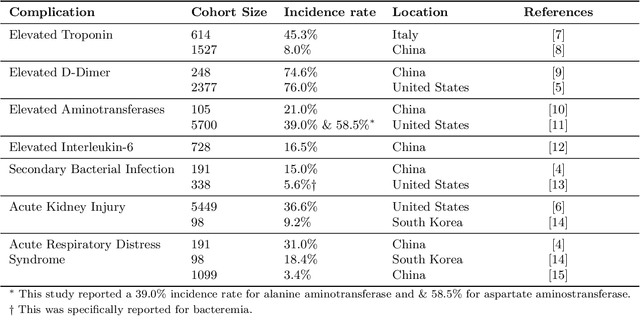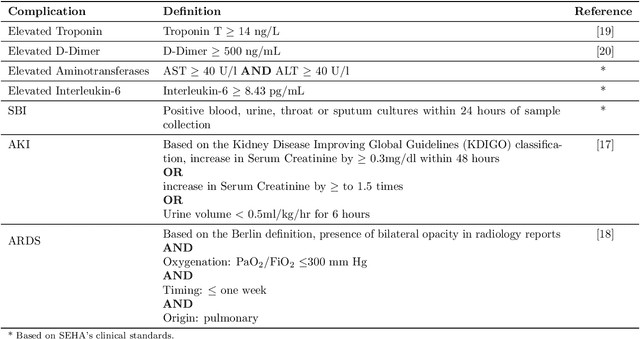Clinical prediction system of complications among COVID-19 patients: a development and validation retrospective multicentre study
Paper and Code
Nov 28, 2020



Existing prognostic tools mainly focus on predicting the risk of mortality among patients with coronavirus disease 2019. However, clinical evidence suggests that COVID-19 can result in non-mortal complications that affect patient prognosis. To support patient risk stratification, we aimed to develop a prognostic system that predicts complications common to COVID-19. In this retrospective study, we used data collected from 3,352 COVID-19 patient encounters admitted to 18 facilities between April 1 and April 30, 2020, in Abu Dhabi (AD), UAE. The hospitals were split based on geographical proximity to assess for our proposed system's learning generalizability, AD Middle region and AD Western & Eastern regions, A and B, respectively. Using data collected during the first 24 hours of admission, the machine learning-based prognostic system predicts the risk of developing any of seven complications during the hospital stay. The complications include secondary bacterial infection, AKI, ARDS, and elevated biomarkers linked to increased patient severity, including d-dimer, interleukin-6, aminotransferases, and troponin. During training, the system applies an exclusion criteria, hyperparameter tuning, and model selection for each complication-specific model. The system achieves good accuracy across all complications and both regions. In test set A (587 patient encounters), the system achieves 0.91 AUROC for AKI and >0.80 AUROC for most of the other complications. In test set B (225 patient encounters), the respective system achieves 0.90 AUROC for AKI, elevated troponin, and elevated interleukin-6, and >0.80 AUROC for most of the other complications. The best performing models, as selected by our system, were mainly gradient boosting models and logistic regression. Our results show that a data-driven approach using machine learning can predict the risk of such complications with high accuracy.
 Add to Chrome
Add to Chrome Add to Firefox
Add to Firefox Add to Edge
Add to Edge